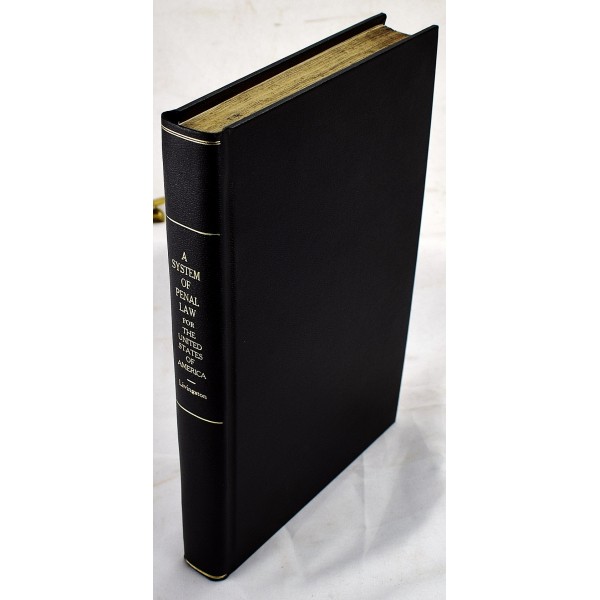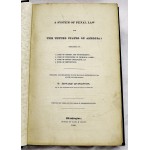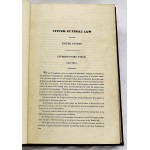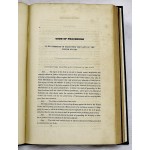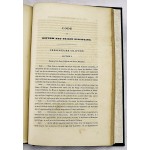System of Penal Law for the United States of America Consisting of a Code of Crimes and Punishments; a Code of Procedure in Criminal Cases; a Code of Prison Discipline; and a Book of Definitions
System of Penal Law for the United States of America Consisting of a Code of Crimes and Punishments; a Code of Procedure in Criminal Cases; a Code of Prison Discipline; and a Book of Definitions
Livingston, Edward
Washington: Gales & Seaton, 1828
[An important work in American Jurisprudence] Folio. Bound in modern black cloth, with gilt spine lettering. Fine binding and cover. Renewed end pages. x, [2], 142, 187, 51, 45, [1], 21 pages. Darkening to outer edge. Internally generally very clean and unmarked. Early signature of William Green, 1865. Refs: Cohen "Bibliography of Early American Law" 10311; Sabin 41617; Hicks, Men and Books Famous in the Law, 180.
Edward Livingston (1764-1836) was an American jurist and statesman. He served as US Secretary of State, Minister to France and a Congressman and Senator from Louisiana. After working as a lawyer in New York with Aaron Burr and Alexander Hamilton, Livingston became a prominent person in the new state of Louisiana. "The first legal genius of modern times" (Dictionary of American Biography).
Livingston developed a code of law, popularly called the "Livingston Code," intended both for his state and for the nation. While never adopted by the State, Livingston's labor was widely read and influential as an enlightened model of judicial reform. "These Codes embody the most comprehensive and enlightened system of criminal law that has ever been presented to the world. They constitute a thesaurus from which the world has ever since been drawing ideas and principles. The Code of Reform and Prison Discipline is especially striking from the breadth of its view, and in some particulars its wisdom is yet in advance of even the present age" (Eugene Smith, Edward Livingston and the Louisiana Codes, in Columbia Law Review, II, n. 1, 1902, p. 32). Livingston was heavily influenced by the writings of Jeremy Bentham. The work was notable for its emphasis on rehabilitation and prevention rather than revenge and punishment. In it, Livingston advocated the abolition of capital punishment; and changing penitentiary labor from forced punishment to a reward based system chosen by the prisoner who would receive better accommodations in exchange.
